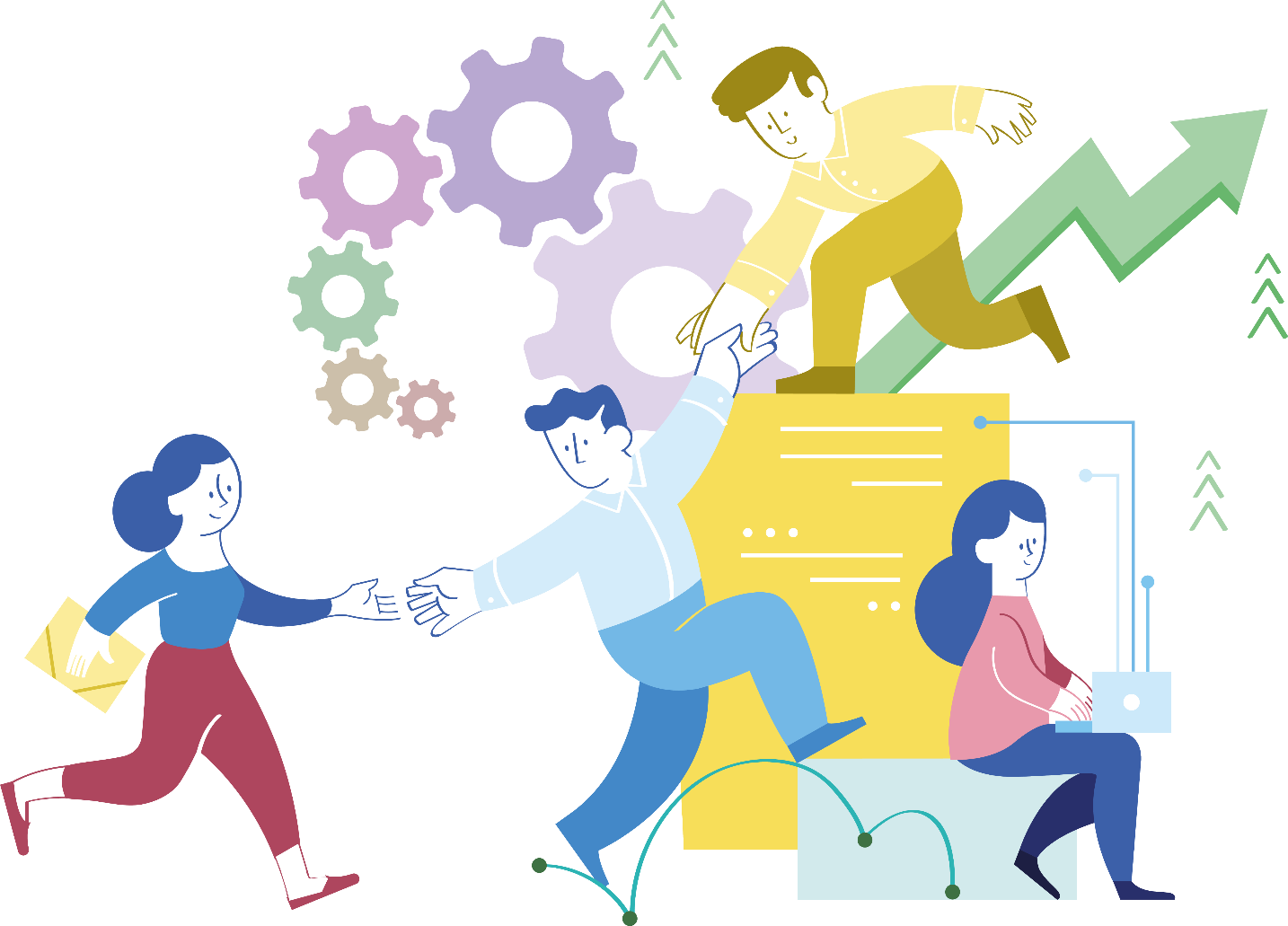Investing In People And Talent
A diverse pool of highly skilled and technically trained people is a fundamental building block of the European Innovation ecosystem. People are the engine that fuels the innovation that changes people’s lives.
For innovation to thrive, people need to feel part of an environment that supports an inclusive, equitable and engaging work culture. They need to feel inspired and empowered to do their best for patients in need.
Equity is one of four company values at Pfizer, and this calls on us to ensure that every colleague is seen, heard and cared for. It helps us to create the inclusive environment where a culture of innovation can thrive. We know that diverse and equitable teams are more collaborative, accept differences and are more likely to strike a balance between caution and risk-seeking.
It is essential that the next generation of talent be engaged and inspired by science. In particular, society would benefit from increased access to opportunities for women to education and training in STEM (science, technology, engineering and mathematics).
An increasingly ageing population and skills shortages in emerging technologies jeopardise the development of Europe’s innovative life sciences ecosystem. There is an urgent need to train and recruit the next generation of scientific talent as well as to support a framework of lifelong learning, which reflects the non-linear nature of education and skills development, exemplified in the ongoing need to acquire new digital skill sets.

Post – COVID-19 lessons
The response to COVID-19 taught us that scaling a life sciences workforce requires foresight and a long-time horizon. A large proportion of life science ecosystem workers are highly-educated and technically skilled. Therefore, ramping up a supply of workers for the sector is not something that can be accomplished quickly. This is even more evident during a pandemic when movement of people, especially internationally, becomes challenging.
The pandemic has shown the importance of investing in strong and diverse talent pipelines in order to adapt to future needs, including via continuous education programmes and training. It also presented immense personal challenges, both to our work-life routines and to our mental health, and reminded us of the importance of maintaining a supportive environment where everyone can feel secure and able to perform at their best.
How does Pfizer invest in people?
In order to achieve our Purpose – Breakthroughs that change patients’ lives – Pfizer has a series of Bold Moves, and the first of these is ‘Unleash the Power of Our People’. This is the one that makes all the others possible, by making sure Pfizer is an amazing place to work where all colleagues can reach their full potential. It does so by recognizing and rewarding both performance and leadership and empowers all colleagues to bring their best selves to work for the benefit of patients.
Pfizer has also rolled out programmes to build an equitable work environment as well as empowering the next generation of innovators through a focus on education.
For example, we are excited about the potential of a new partnership with an organisation called TENT which helps refugees to integrate into their new communities and find rewarding careers. In Europe, our programmes for 2022 include mentorship for women – in just a few weeks we recruited 85 Pfizer mentors across three pilot countries. We will be developing and rolling out other programmes, in partnership with TENT, through the year.
Our success links directly to the commitment, engagement and performance of our employees. Biopharmaceutical companies like Pfizer face intense competition for highly talented employees. We must not only attract the best and brightest, but also ensure they can thrive in an environment committed to their professional and personal success.
Policy recommendations
- Companies should be incentivised to strengthen their commitment to equity and diversity through hiring, pay and advancement practices that promote equal opportunities.
- Increase investments in STEM and life sciences education to develop the workforce of tomorrow, inspire the next generation of innovators, and improve public awareness of career opportunities in the life sciences sector.
- Facilitate collaboration within industry and between European countries to help public authorities and companies provide reskilling and lifelong learning initiatives that empower the workforce – especially as the wave of technological transformation changes the workplace.
- Ensure a better connection between education curricula and job market: prepare the next generation of talent for the jobs of tomorrow, with a European strategy, and not fragmentation across countries.